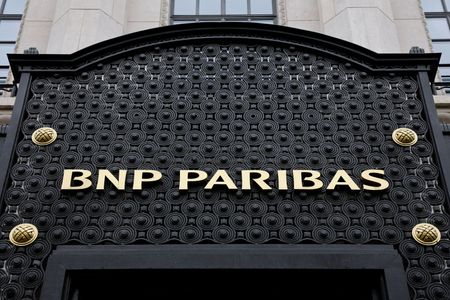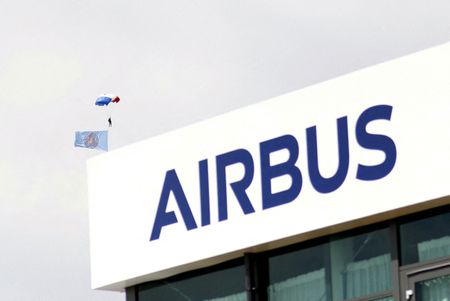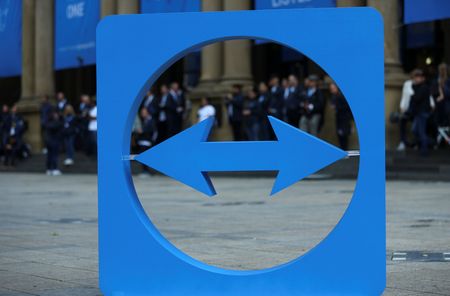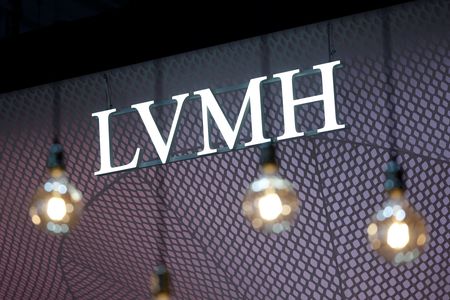By Mathieu Rosemain
PARIS (Reuters) -BNP Paribas sought to reassure investors on Tuesday that it faces limited exposure to a Sudan-related litigation, although analysts said there was continued uncertainty and shares in the lender dropped again.
A U.S. jury on Friday found the French bank helped Sudan’s government commit genocide by providing banking services that violated American sanctions.
The court ordered the euro zone’s biggest lender by assets to pay a combined $20.5 million to three Sudanese plaintiffs who testified about human rights abuses perpetrated under former President Omar al-Bashir’s rule, raising concerns about potential further claims.
BNP shares, which tumbled sharply on Monday as investors assessed the implications, were down 1.6% on Tuesday afternoon, underperforming both the broader market and the banking sector.
Chief Financial Officer Lars Machenil told analysts the bank made no provisions for Sudan-related litigation in its upcoming third-quarter results, due on October 28, as it expects the verdict to be overturned on appeal.
Machenil also said that Swiss law applied in this case, offering a potential shield for the bank.
“The U.S. court ruled that Swiss civil law applies in this case, as the relevant transactions were carried out from Geneva. Moreover, Swiss civil law does not allow for the liability being claimed, and the Swiss government has officially confirmed that there is no legal basis for such liability,” Machenil said.
Analysts said doubts remained.
“While the bank sees the risk of broader claims as low, we cannot rule it out entirely. The uncertainty around this matter will weigh on the share price until more clarity emerges from BNP’s appeal,” said Johann Scholtz, an analyst at Morningstar.
Traders at banks said in notes to clients that the CFO’s comments during the analysts’ call on Tuesday raised more questions than answers.
NO PRECEDENT FOR SIMILAR CASES
Machenil downplayed the risks of a class action, describing it as a “case by case” situation.
“This is neither a regulatory fine nor a criminal penalty, but a private legal dispute. The verdict concerns only three plaintiffs, and it does not set a precedent for similar cases,” he said.
He added that the judge had said any individual compensation claims related to the Sudan case would require separate trials.
Asked how many additional plaintiffs could come forward, Machenil said: “I don’t have a crystal ball.” He also declined to say how long the appeal process might take, noting it would be at least a couple of months and not more than 12 months.
NO LINK TO 2014 LITIGATION
Lawyers for the three plaintiffs, who now reside in the United States, said on Friday the verdict opens the door for more than 20,000 Sudanese refugees in the U.S. to seek billions of dollars in damages from the French bank.
After law firms jointly representing the plaintiffs said they could no longer work together because of disputes over ethics, the judge overseeing the case in July severed the three victims from the rest of the class, meaning their claims would no longer have any binding effect on others.
However, the judge reappointed the three victims as class representatives days before the trial began, after the plaintiffs’ lawyers said their relationship had improved.
BNP Paribas previously pleaded guilty in 2014 to violating U.S. sanctions against Sudan, Cuba and Iran, agreeing to pay an $8.9 billion penalty. The bank was then accused of processing billions of dollars of transactions through the U.S. financial system on behalf of Sudanese entities despite sanctions designed to block such transactions.
“The current litigation has nothing to do with the 2014 criminal proceedings,” Machenil said in the call.
(Reporting by Mathieu Rosemain; Additional reporting by Jan Wolfe, Mateusz Rabiega and Jakob Van Calster in Gdansk; Editing by Tommy Reggiori Wilkes and Susan Fenton)










